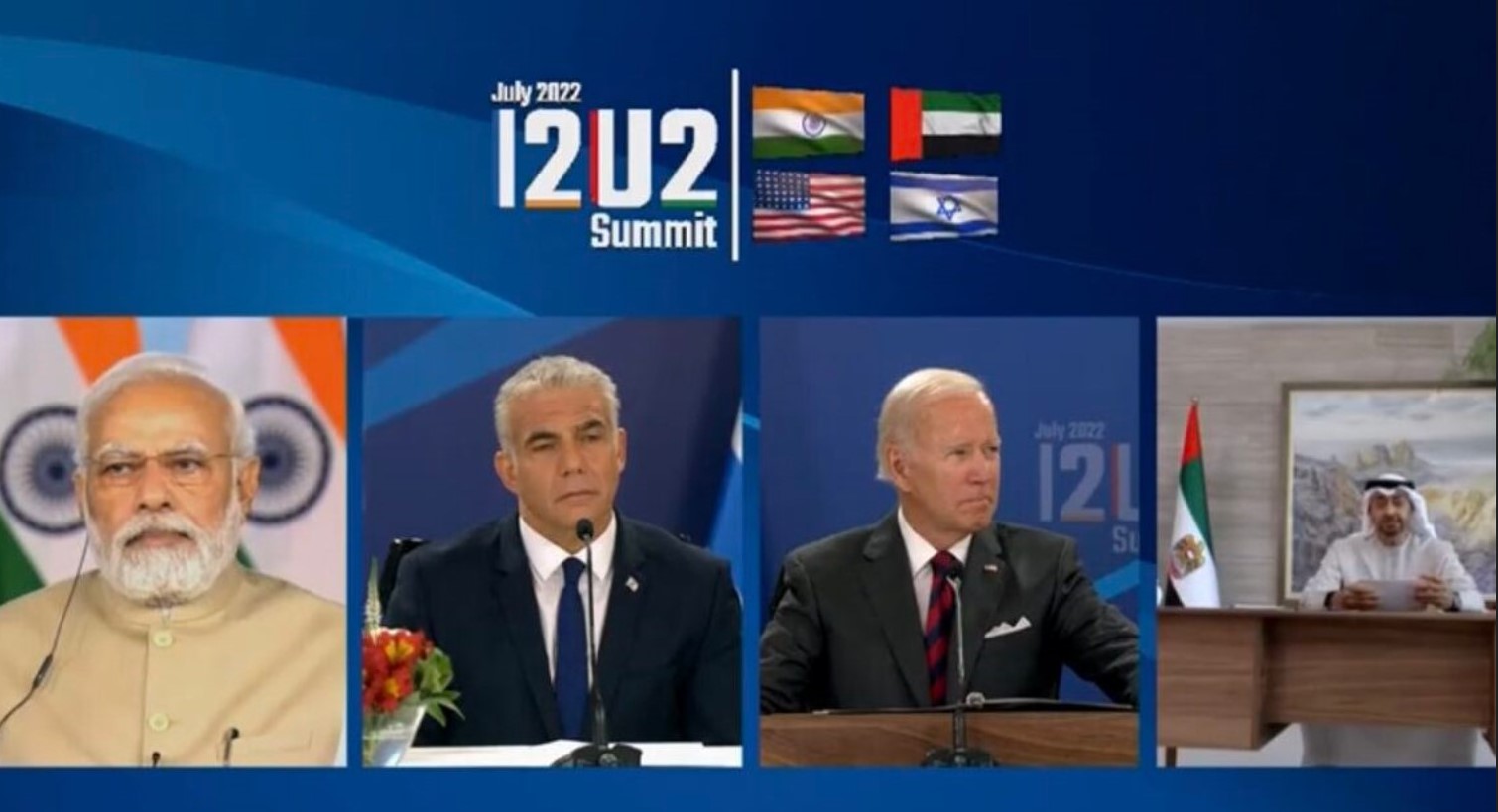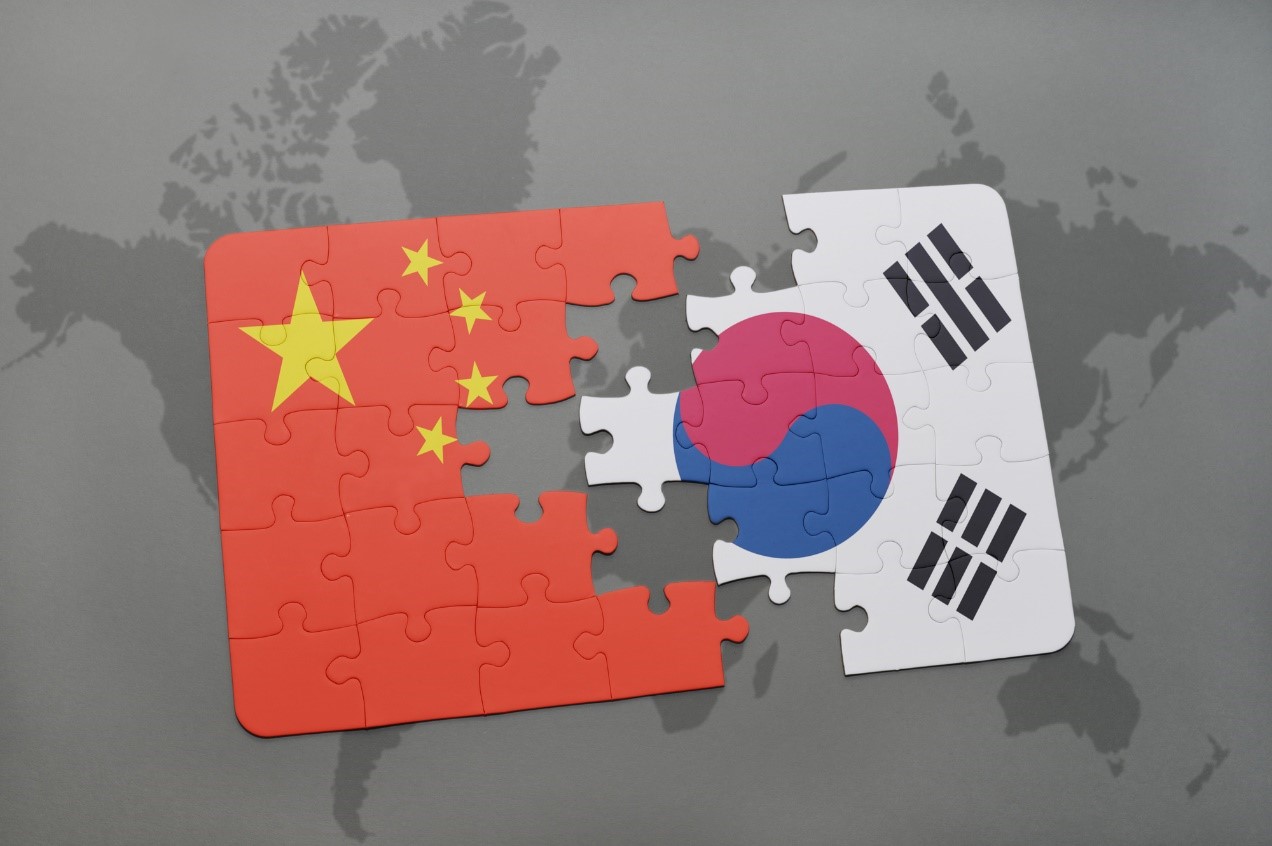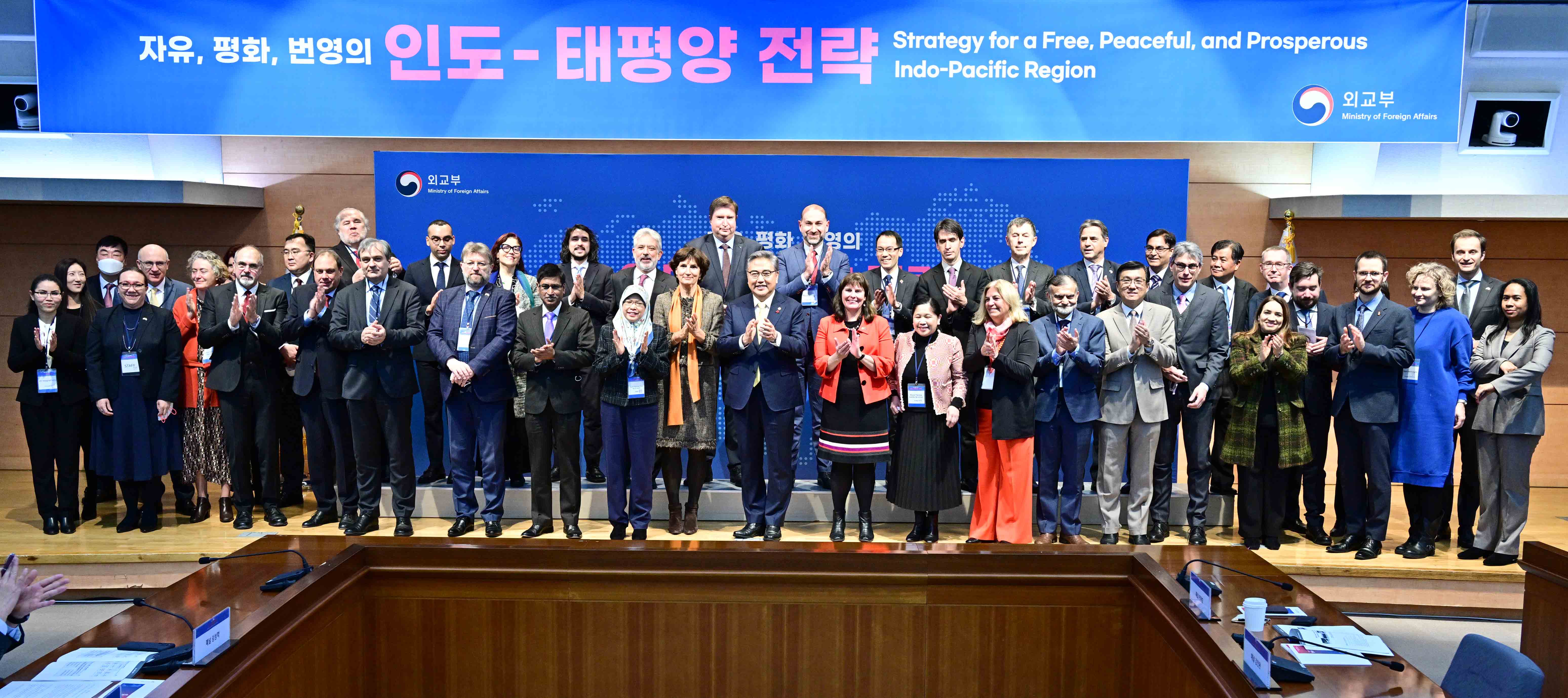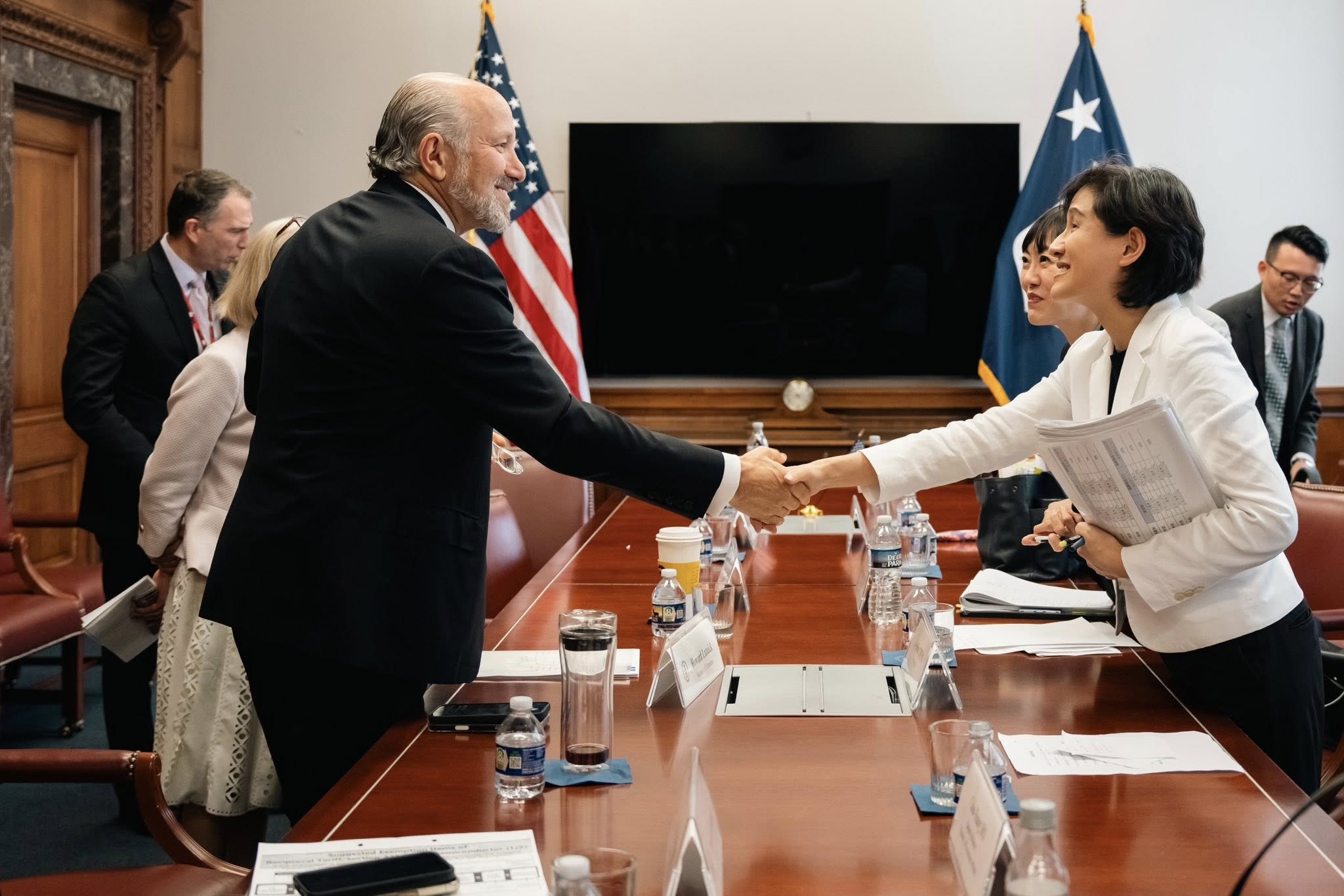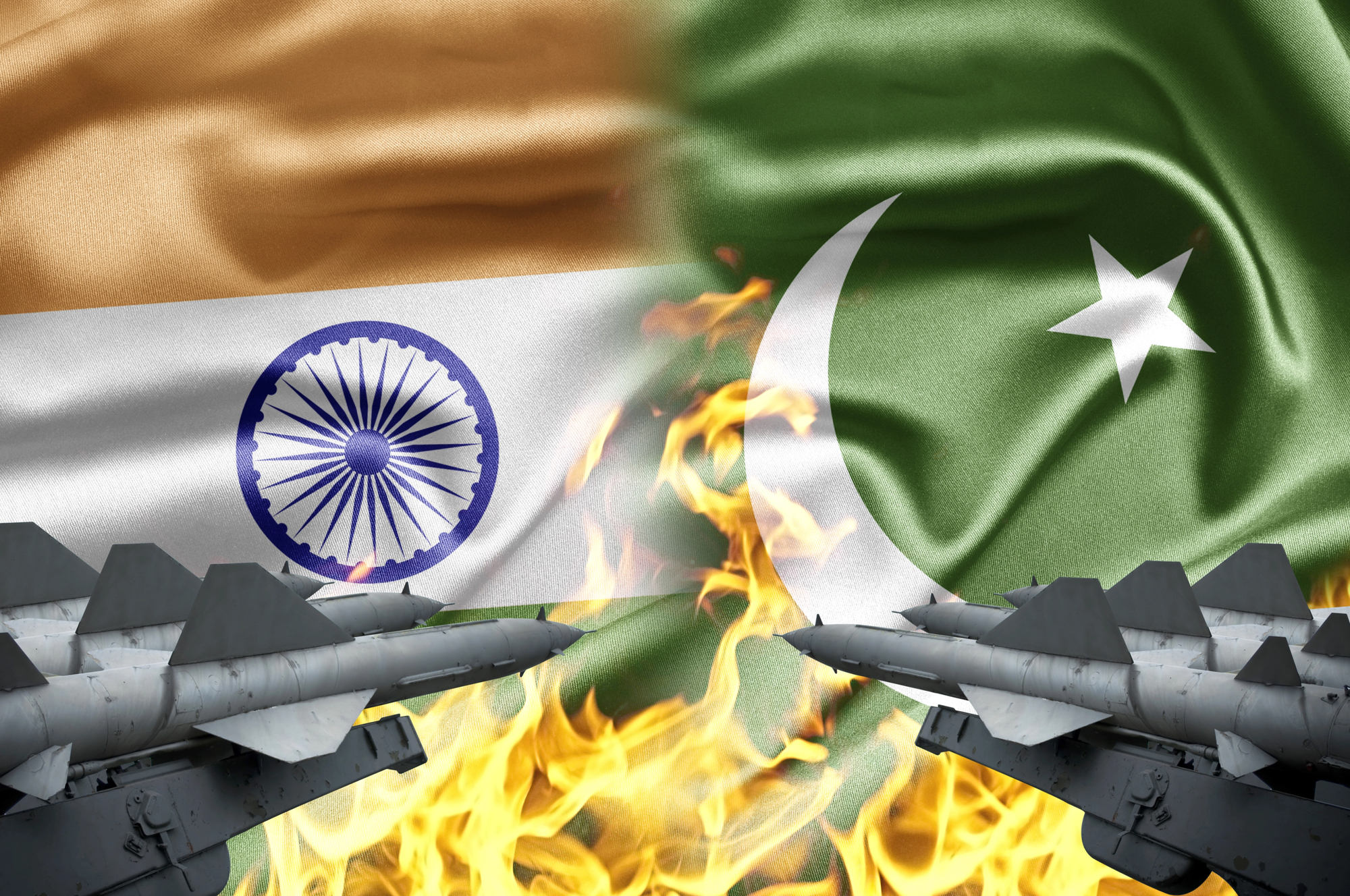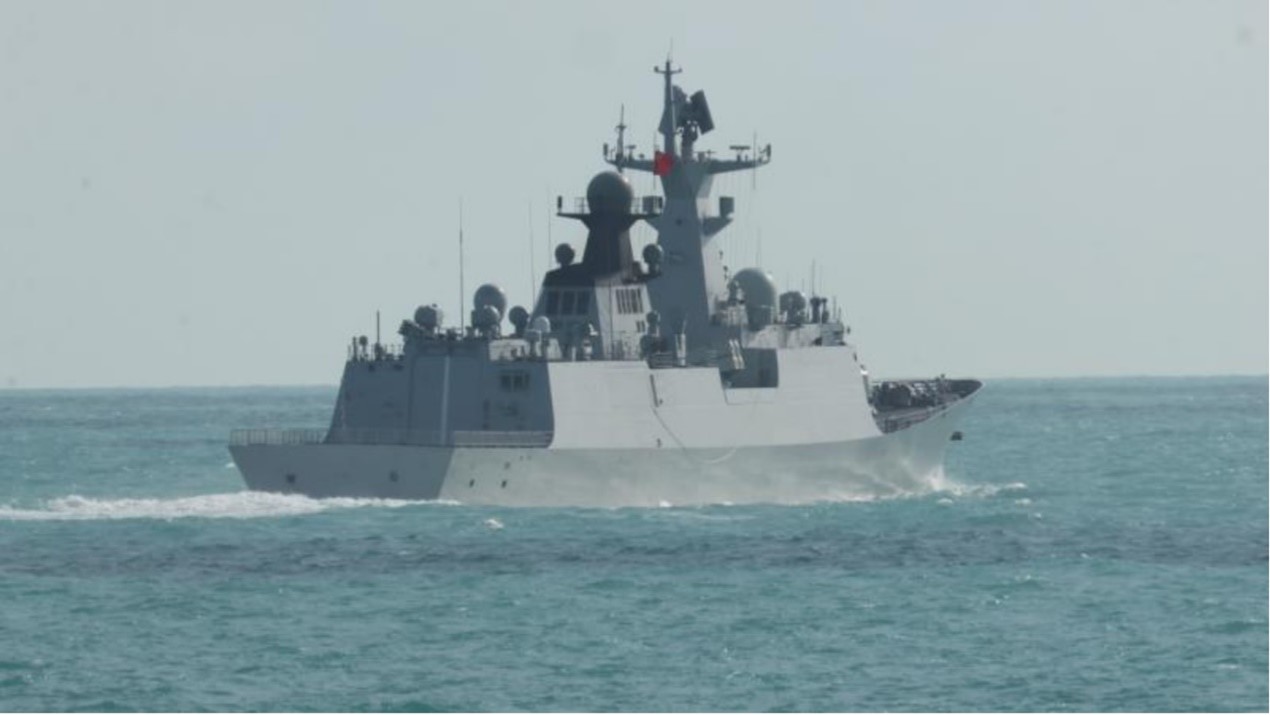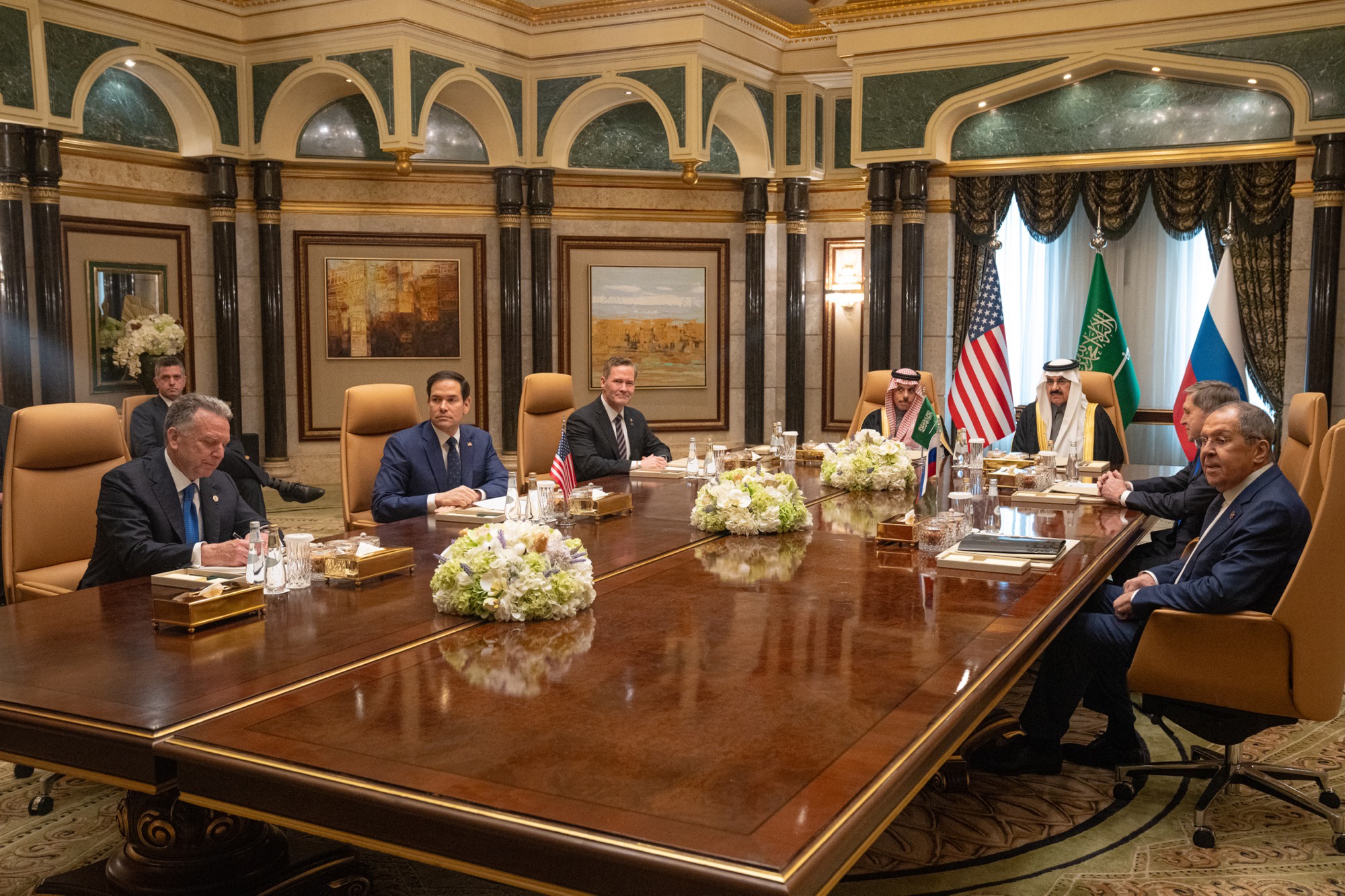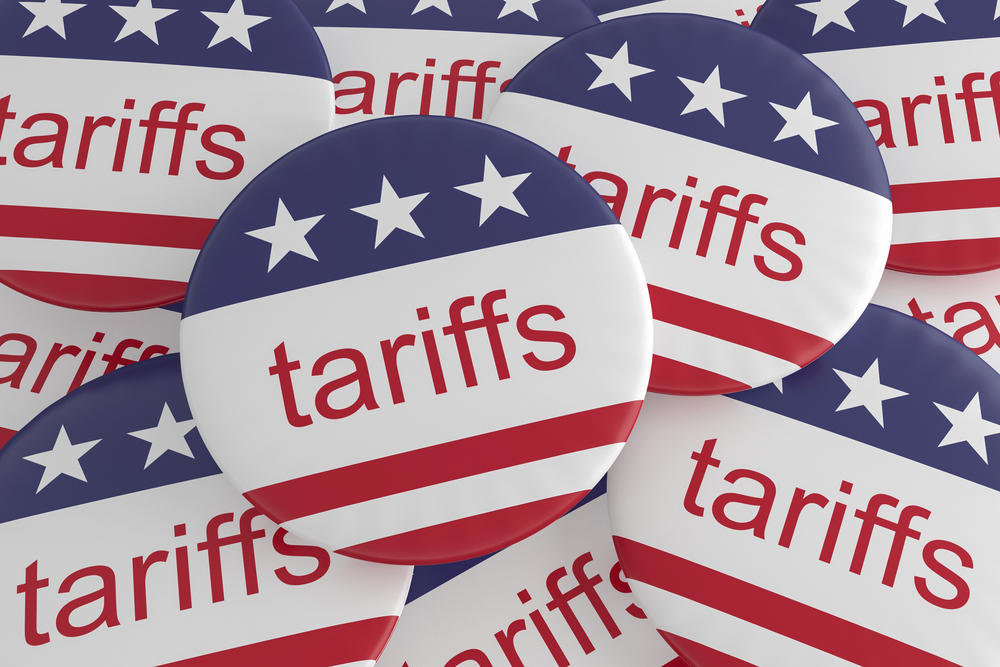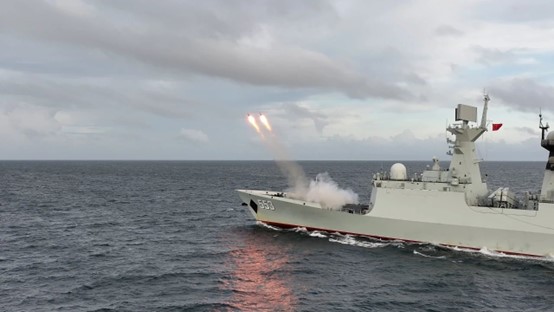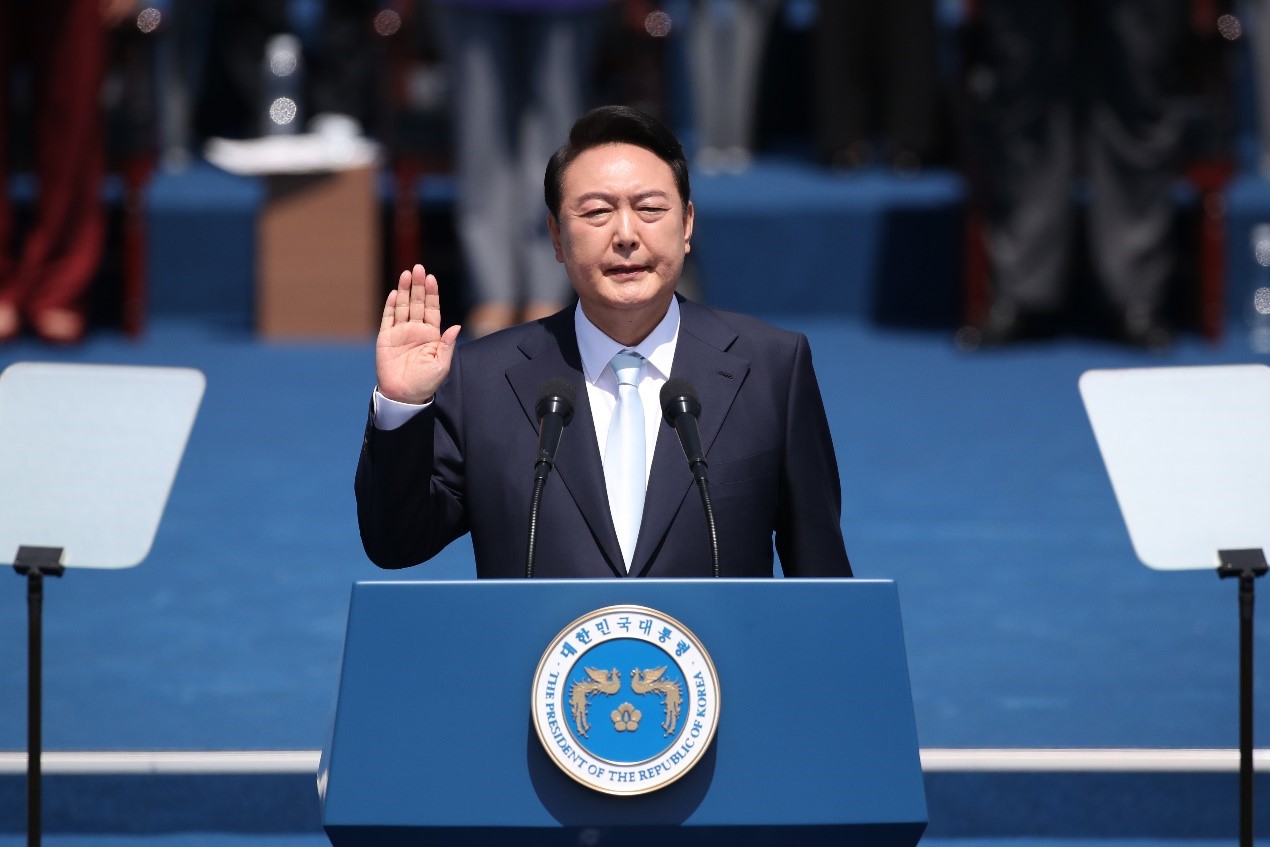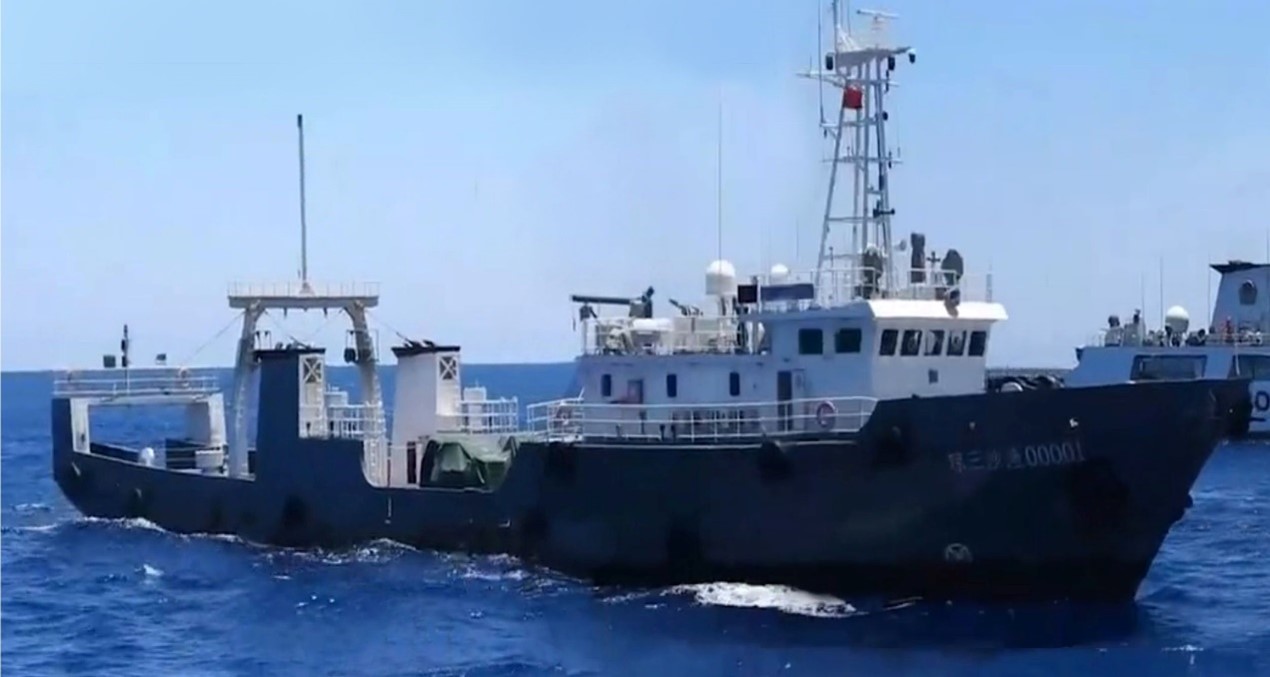Since the Russian invasion of Ukraine, the U.S. has aggressively developed a cross-regional security cooperation framework, and I2U2 is seen as a “companion project” to the QUAD. With these initiatives, the Biden administration is attempting to integrate the Indo-Pacific and the Middle East to contain Chinese and Russian influence in those two important regions.
Picture source: U.S. Embassy In India, July 14, 2022, U.S. Embassy In India, https://in.usembassy.gov/joint-statement-of-the-leaders-of-india-israel-united-arab-emirates-and-the-united-states-i2u2/.
I2U2: Regional Security and U.S. Strategic Planning
Prospects & Perspectives No. 45
By Kuo-cheng Chang
U.S. President Joe Biden and Israeli Prime Minister Yair Lapid met in Jerusalem on July 14, 2022, and held a virtual meeting with Indian Prime Minister Narendra Damodardas Modi and UAE President Sheikh Mohamed bin Zayed Al Nahyan. The four-way hybrid meeting was also the first summit of a new “I2U2” grouping formed by the four countries. In a briefing after the meeting, the White House stated that I2U2 was focused on joint investments and new initiatives in water, energy, transportation, space, health and food security, and the discussions in the first leaders’ summit focused on the food security crisis and clean energy issues.
Since the Russian invasion of Ukraine, the U.S. has aggressively developed a cross-regional security cooperation framework, and I2U2 is seen as a “companion project” to the Quadrilateral Security Dialogue Quad Security Dialogue (QUAD). With these initiatives, the Biden administration is attempting to integrate the Indo-Pacific and the Middle East to contain Chinese and Russian influence in those two important regions.
To accomplish this, the U.S.’s approach is to strengthen relationships with leaders of other countries. In the past, support for the U.S. in the Middle East had been mostly from Israel. But after Israel and Arab countries began improving relations, suspicions of the U.S. have diminished in most countries, allowing the U.S to bring together more regions for cooperation. India has no conflicts of interest with Middle East countries, making it a suitable partner to play an intermediary role.
Secondly, various cooperation projects besides the military and security have been proposed. Water, energy, transportation and public health do not touch on sensitive territorial disputes; they also enable exchanges and cooperation in finance and technology.
The third objective of the summit was to promote cooperation in response to the impact of Russia’s invasion of Ukraine on the global economy. Since 2021, food prices worldwide have increased. Soaring prices in many ways are the result of the COVID-19 pandemic. Restrictions on the movement of people by epidemic prevention measures have increased food costs. In addition, the currencies of many developing countries have been greatly devalued during the pandemic, making imported food more expensive. Furthermore, many people who lost their income due to the epidemic have also avoided buying less affordable meat and fresh fruits and vegetables, turning instead to wheat and foods that can easily satisfy hunger despite providing less nutrition. This has in turn pushed up demand and prices of basic foods. While the Russian invasion of Ukraine has undercut the latter’s grain production and exports, economic sanctions against Russia have led to increase in oil and natural gas prices, making fertilizer prices go up and pushing food prices higher. This is especially unfavorable to developing countries that do not produce oil.
The U.S.’s I2U2 strategy in future is to prevent security threats from arising in any region. Without cross-regional cooperation with other countries, it will be difficult for the U.S. to mediate regional conflicts and deploy military forces when necessary. This vulnerability makes it possible for certain countries to threaten energy supplies and allows for the proliferation of weapons of mass destruction.
Iran signed an international agreement with several world powers in 2015 to limit its ability to produce nuclear materials that could be used to make nuclear weapons and the amount of nuclear materials it possesses. However, during the Trump presidency, the U.S. withdrew from the deal in 2018, citing “its weakness in restraining Iran,” and reinstated severe sanctions on Tehran. Although Trump’s move was welcomed and praised by Israel, it has sped up the progress of Iran’s nuclear program instead. After the U.S. pulled out of the Iran nuclear deal, there was a clear increase in nuclear development activity in Iran, forcing the U.S. and several world powers to resume nuclear talks with Iran in Vienna. U.S. President Biden is hoping to see a new international agreement concluded by all parties involved. Israel, which has previously opposed the Iran nuclear deal, now indicates it would also support a new international agreement if restrictions are tightened. Of course, Iran strongly disagrees with tougher conditions.
The Russian invasion of Ukraine has added a great deal of uncertainty to the issue. With oil prices surging, a crisis over Iran would compound the impact on the global economy. Pushing forward I2U2 is likely to help strengthen Washington’s hand in its dealing with the Iran nuclear issue. Since it is impractical for the U.S. to destroy Iran’s nuclear facilities by military means, negotiation remains the best option for the time being. Forging regional unity may help bring Tehran back to the negotiating table. If using force against Iran becomes inevitable, it will require cooperation from countries in the region.
If I2U2 proves a success, it may facilitate other cross-regional cooperation. The Belt and Road Initiative (BRI) promoted by China has in fact kicked off cross-regional cooperation, only it is led by China. The I2U2 model has certain balancing effects against China’s diplomatic strategy. For example, I2U2 provides India with stable energy supplies to alleviate its food crisis, and Israel and the UAE can counter Iranian threat jointly with U.S. support. Iran’s threat to regional security to a large extent arises from China’s support, and India can assist in containing China. The UAE has invested in India’s clean energy construction, and Israel can provide India with useful military technology. Such exchanges will enable these countries to avoid over-reliance on Russia and China for military technology to ensure their own security. Whether it will become a new pattern for U.S. diplomatic strategy in future deserves close attention.
(Dr. Chang is Professor, Center for General Education, Taipei Medical University.


